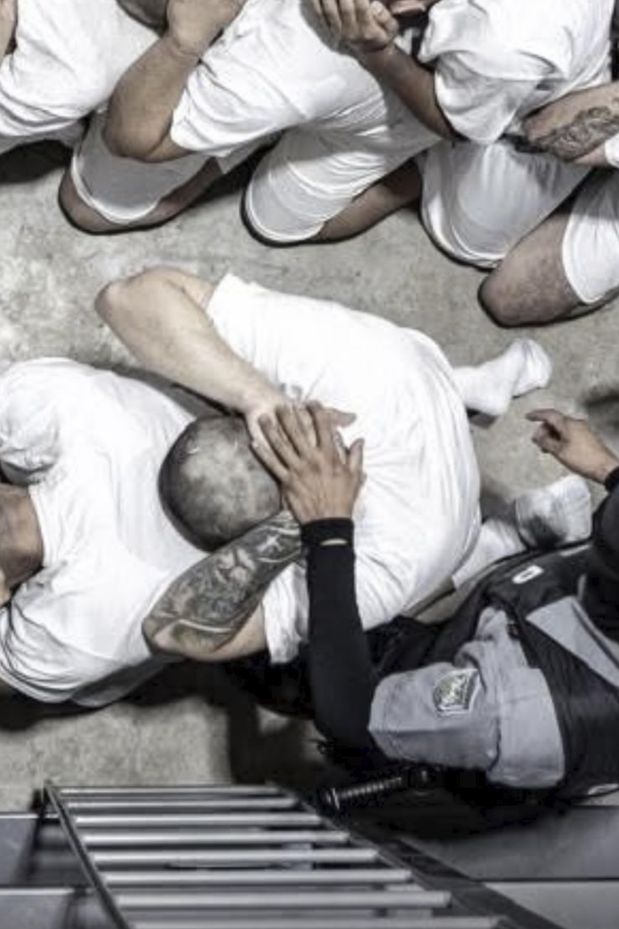
The Supreme Court on Thursday ordered Homeland Security to try to bring back an MS-13 gang suspect who was wrongly deported to El Salvador.
The justices largely backed a lower court ruling that had demanded the return of Kilmar Abrego Garcia.
But they said Judge Paula Xinis needs to be careful about how far she goes in demanding Mr. Abrego Garcia’s return.
“The order properly requires the Government to ‘facilitate’ Abrego Garcia’s release from custody in El Salvador and to ensure that his case is handled as it would have been had he not been improperly sent to El Salvador,” the high court said in an unsigned order.
But then the justices added that “the intended scope of the term ‘effectuate’ in the District Court’s order is, however, unclear, and may exceed the District Court’s authority.”
“The District Court should clarify its directive, with due regard for the deference owed to the Executive Branch in the conduct of foreign affairs. For its part, the Government should be prepared to share what it can concerning the steps it has taken and the prospect of further steps,” the justices said.
The White House has admitted the removal was an “error” but has insisted it wouldn’t bring him back, arguing he’s a dangerous member of MS-13 and is a foreign citizen now in the custody of his own country.
Lower-court judges have been withering in their judgment of the administration.
The case has turned into a major flashpoint between the courts and President Trump, who claims expansive presidential powers to carry out deportations in line with his campaign promises.
Judge Xinis ruled that the March 12 arrest of Mr. Abrego Garcia was illegal because there was no valid warrant or order to carry it out. She called the arrest “unconstitutional.”
She also ruled that the deportation three days later was “unlawful” because of the standing directive that he not be sent to El Salvador.
The district court judge had set a deadline of midnight Monday.
That had been put on hold by Chief Justice John G. Roberts Jr.
The high court on Thursday said that old deadline no longer applies, suggesting it is up to Judge Xinis to set new parameters.
Mr. Abrego Garcia, a Salvadoran citizen, was in the country illegally and was ordered deported by an immigration judge in 2019.
But the judge also found that he would face persecution if sent back to El Salvador, so the court granted him what’s known as withholding of removal. That meant he could be deported to another country, but not to El Salvador.
On March 15, despite that ruling, he was put on one of three planeloads of people the government said were members of MS-13 or Tren de Aragua, a Venezuelan gang.
The administration has declared both gangs to be terrorist organizations.
Mr. Abrego Garcia has denied being a member of MS-13.
His family said it realized he’d been deported when it saw a photo from El Salvador showing him being hustled into that country’s notorious terrorist prison. They said they recognized him from his tattoos and head scars.
He has been in that prison for 26 days.
Justice Sonia Sotomayor filed a statement delivering a further scolding of the Trump administration, saying the deportation was an “egregious error.”
“To this day, the government has cited no basis in law for Abrego Garcia’s warrantless arrest, his removal to El Salvador, or his confinement in a Salvadoran prison. Nor could it,” she said, joined by the court’s two other Democratic appointees.
She said Mr. Abrego Garcia has no criminal record and is now a father with a U.S. citizen child.
Justice Sotomayor rejected the administration’s contention that it cannot be ordered to bring back a deportee, calling that “plainly wrong.”
She said the implications of that stance were stark.
“The government’s argument, moreover, implies that it could deport and incarcerate any person, including U.S. citizens, without legal consequence, so long as it does so before a court can intervene,” she said.
She said she would have left Judge Xinis’s order in place without any intervention.





![Jasmine Crockett Justifies Mass Illegal Immigration With Bizarre Argument [WATCH]](https://www.right2024.com/wp-content/uploads/2025/03/1742007023_Jasmine-Crockett-Justifies-Mass-Illegal-Immigration-With-Bizarre-Argument-WATCH-350x250.jpg)

![NYC Tourist Helicopter Falls into Hudson River, Siemens Executive and Family Among Those Killed [WATCH]](https://www.right2024.com/wp-content/uploads/2025/04/NYC-Tourist-Helicopter-Falls-into-Hudson-River-Siemens-Executive-and-350x250.jpg)








